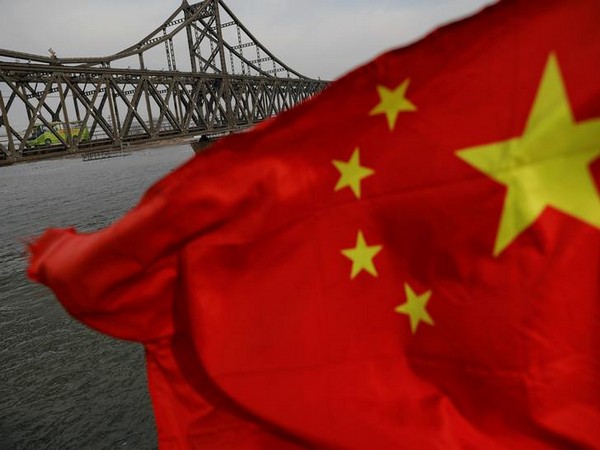In the times when rising democratic aspirations and constructive engagements are the driving force of geopolitics, China’s military adventurism in Taiwan straits is not what the world expects from it. Notwithstanding the changing winds, China is still pursuing a policy of naked display of its military power and even military expansionism in utter violation of international laws.
China’s People’s Liberation Army (PLA) carried out on August 7, what it called “island saturation attack drills” and “bomber deterrence flights” as it concluded unprecedented four-day military drills around Taiwan. These drills, according to Chinese media, was to carry out an “island attack” exercise with a “lockdown” drill.
The Chinese military exercise in and around the Taiwan straits was in retaliation to US congress Speaker, Nancy Pelosi’s recent visit to Taiwan, marking the first visit of any high ranking US official in 25 years. Although Taiwan is a “self-ruled state”, China claims Taiwan as part of its territory and it views visits by foreign government officials as an attempt to recognizing the island’s sovereignty.
Nevertheless, these perceptions of China are the product of its own intents and motives, especially the hidden agenda of throttling the democratic aspirations of the people of Taiwan. US President, Joe Biden, in his response to Chinese complaint of Pelosi’s Taiwan visit as a step towards recognition of its sovereignty, had very clearly stated that “there is no change in America’s longstanding “One China Policy”, which recognizes Beijing but allows informal relations and defense ties with Taipei.
What might have irked China is Pelosi’s portrayal of her visit to Taiwan as part of a US obligation to stand with democracies against autocratic countries. Had China been sure about is intents and motives, Pelosi’s statement would not have hurt it. China’s discomfort with the idea of democracy and safeguarding it from autocracy does not auger well for its aspirations to rise up as a global power in geo-political reckoning.
Beijing has denounced the visit of Pelosi as a violation of the US pledge 50 years ago not to formally recognize the government of Taiwan, which it claims as part of its territory. However, Pelosi cited in an opinion piece in the Washington Post on her arrival to Taiwan the commitment that the US made to a democratic Taiwan under a 1979 law. She added, “it is essential that America and our allies make clear that we never give in to autocrats.” Beijing, however, sees official American contact with Taiwan encouragement to make the island’s decades-old de facto independence permanent. Soon after Pelosi’s arrival, China announced a series of military operations and drills, which followed its promises of “resolute and strong measures.”
Democratic aspirations in Taiwan is neither new nor provoked by the US and western allies. The island was annexed in 1683 by the Qing Dynasty of China, and ceded to the empire of Japan in 1835. The Republic of China (ROC) which had overthrown the Qing rulers took control of Taiwan on behalf of the allies of the World War II, following the surrender of Japan in 1945. The resumption of Chinese civil war resulted in the ROC’s loss of mainland China to forces of the Chinese Communist Party (CCP) and consequent retreat to Taiwan in 1949. Its effective jurisdiction has since been limited to Taiwan and smaller islands. The ROC no longer represents China as a member of the United Nations, after UN members voted in 1971 to recognize the People’s Republic of China (PRC) instead. The ROC initially maintained its claim of being the sole legitimate representative of China and its territory, but later, especially after democratization of Taiwan in the 1990s. ROC relented on its claim but PRC claims Taiwan as part of its territory.
Taiwanese people have chosen democracy over autocracy. Taiwan’s hard-earned democracy, having transitioned from authoritarianism to a vibrant democratic system, is constantly under siege from Beijing’s intimidation and coercion. Chinese credibility on democracy is in doubt both in the mainland and overseas because of its coercive and authoritarian regime and military power projections in South China Sea Region as well as Taiwan Strait.
It is natural for China to aspire to become a geopolitical heavyweight after its success in economic growth. But economic growth alone does not make a global power. While China intends rising up on the geo-political ladder, its most of the interventions from Hong Kong to Taiwan are high-handed and anti-democratic as clear from its measures against the people and governments that tantamount to suppression. These goals are incompatible. China needs to learn to respect people’s aspirations and sovereignty of nations if it wants to enhance its credibility as a rising global power.
Taiwan’s President Tsai Ing-Wen has time and again made a strong case that Taiwan’s resilience is critical to regional peace and the future of democracy. But the way China has handled the Hong Kong and Taiwan issue does not signal any change in China’s policy. Even as the four-day Taiwan focused drill ended, China’s Maritime Safety Administration (MSA) announced more military exercises around yellow see located between China and Korean Peninsula during August 7-15 and Bohai Sea, off the northern Chinese coast during August 8-September 8.
China might believe that expanding drills across new maritime areas would enhance its image as a militarily power, but it is further proving China’s “military expansionism” which eventually erodes the credibility that an aspiring global power so desperately needs. Already, Chinese misdemeanors in India and Bhutan’s neighbourhood have been noted globally as an utter disregard of sovereignty of other countries. Taiwan is an opportunity for China to prove that it is not a wrangler, but a responsible global power. Lest it will never be able to constructively engage with its neighbours and other global powers.

